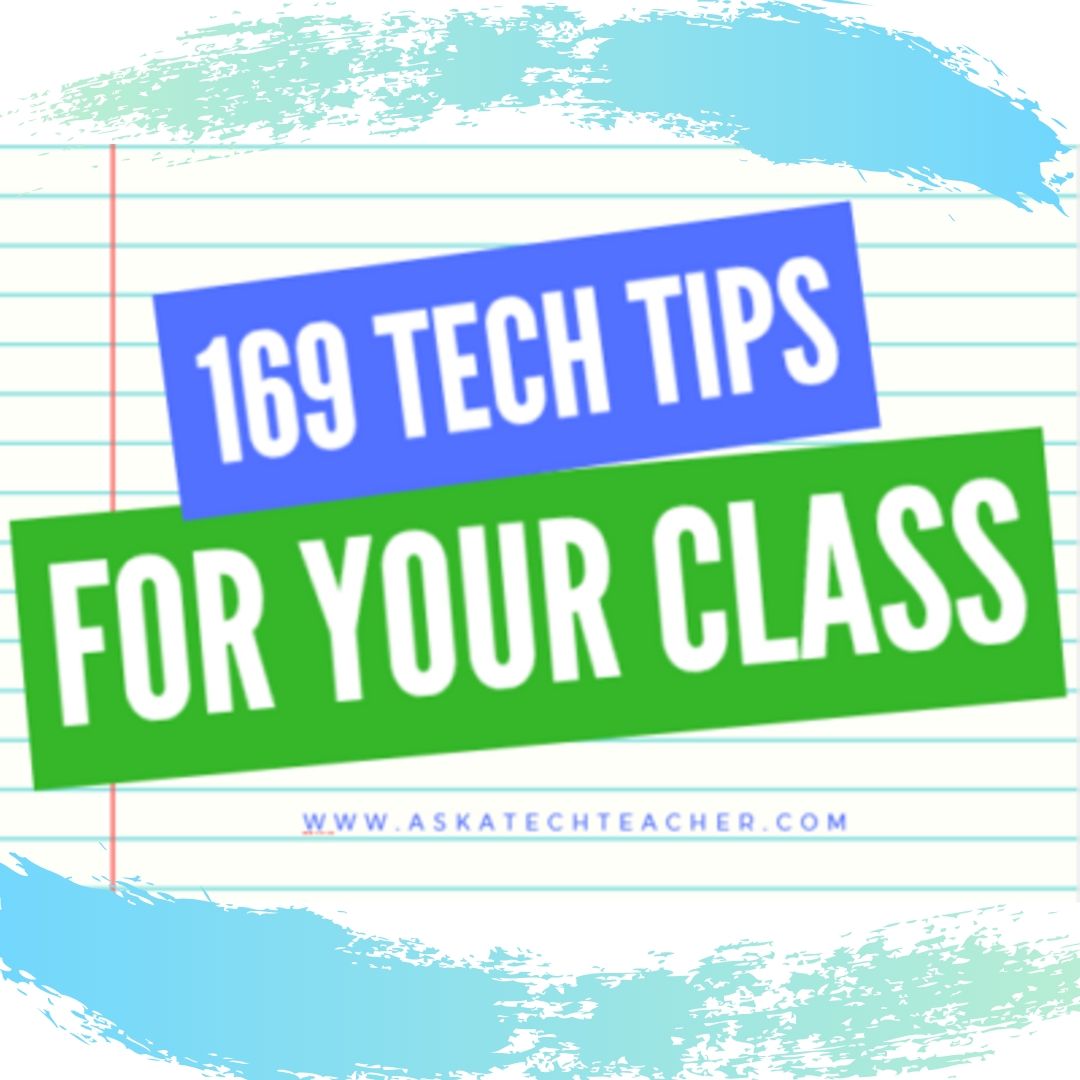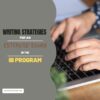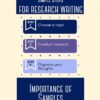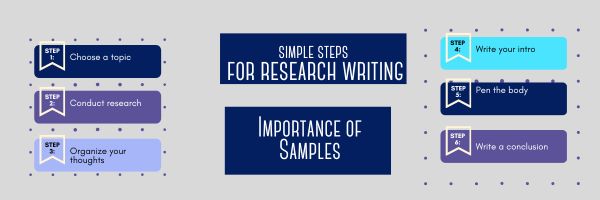
Category: Research
19 Online News Resources for Kids
Here are popular online resources to teach about news sources for kids (click here for updates to this list):
- Allsides (news stories compared across multiple political perspectives)
- Breaking News–from Class Tools, create your own screen
- BBC News (app)
- C News for kids
- Kids News – Current Events
- Listenwise
- Newsela–news for kids, reformatted at different reading levels
- News-o-matic for kids (app)
- NewseumEd
- News for Kids–free
- Newspaper Navigator–from the Library of Congress; search endless newspapers
- PBS Newshour Extra–for grades 7-12
- Scholastic
- TeachingKidsNews
- TweenTribune–by Smithsonian
- US News Map–the news headlines between 1789 and 1922
- Youngzine
- Youth Radio
- Yummy Math—math news
Fake News (click for resources)
Share this:
How to Find Reliable Internet Sources
Reliable internet sources are the same as those you would search for in the library. You want:
- primary sources
- unbiased sources
- sources with the background and training to understand the topic
Young students have difficulty understanding these rules. They have barely learned about ‘primary sources’ and have no idea how to select unbiased ones. As for the final point, the ability to select sources with relevant background–that usually comes with age and experience, not something students get for most of their academic career.
With that in mind, there is one guideline that will help even novice researchers find reliable sources: the extension. Here are the most popular extensions in order of reliability, dependability, and trustworthiness:
Share this:
Unconventional Research Sites to Inspire Students
Pew Research recently reported that about half of Americans regularly get their news from social media. Really? Isn’t SM where you share personal information, stay in touch with friends and families, post pictures of weddings and birthdays, and gossip? So why do students turn to it for news?
This stat may explain it: 60% of people don’t trust traditional news sources. That’s newspapers, evening news, and anything considered ‘mainstream media’. They prefer blogs, Twitter, and Facebook.
So when it comes to research, are you still directing kids toward your grandmother’s resources — encyclopedias, reference books, and museums? No doubt, these are excellent sources, but if students aren’t motivated by them, they won’t get a lot out of them. I have a list of six research sites designed by their developers with an eye toward enticing students in and keeping their interest. It’s notable that most are free, but include advertising. The exception is BrainPOP — there are no ads, but it requires a hefty annual fee:
Share this:
Tech Tip #108–Tech Problem? Google it!
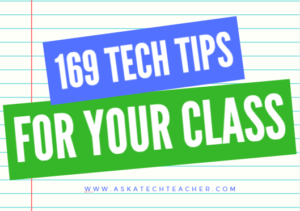 In these 169 tech-centric situations, you get an overview of pedagogy—the tech topics most important to your teaching—as well as practical strategies to address most classroom tech situations, how to scaffold these to learning, and where they provide the subtext to daily tech-infused education.
In these 169 tech-centric situations, you get an overview of pedagogy—the tech topics most important to your teaching—as well as practical strategies to address most classroom tech situations, how to scaffold these to learning, and where they provide the subtext to daily tech-infused education.
Today’s tip: Search the Internet for most tech problem solutions
Category: Problem-solving
Q: Sometimes, I can’t remember how to accomplish a task. What do I do?
A: One of the best gifts I have for students and colleagues alike is how to solve this sort of problem. Before you call your IT guy or the tech teacher, here’s what you do:
Google it.
Type the question into Google and push send. 80% of the problems I am asked can be answered that way. Once you get used to this, you’ll become annoyed when others don’t use it. You have lots of company in that sentiment.
Sign up for a new tip each week or buy the entire 169 Real-world Ways to Put Tech into Your Classroom.
What’s your favorite tech tip in your classroom? Share it in the comments below.
Share this:
33 Online Research Resources
Quick, safe spots to send your students for research (click here for updates):
- BrainPop–with the BrainPop characters, a launchpad to curiosity
- CoolKidFacts–kid-friendly videos, pictures, info, and quizzes–all 100% suitable for children
- Dimensions–academic research geared for college-level
- Fact Monster–help with homework and facts
- Google Earth Timelapse–what changes to the planet over time
- Google Trends–what’s trending in searches
- History Channel–great speeches
- How Stuff Works–the gold standard in explaining stuff to kids
- Info Please–events cataloged year-by-year
- National Geographic for Kids
- Ngram Viewer–analyzes all words in all books on Google Books
- TagGalaxy–search using a cloud
- Wild Wordsmyth–picture dictionary for kids
- World Book–requires membership
Citing Resources
Kids Search Engines
How to Research
- A Google A Day
- How to Search on Google
- Power Searching (with Google)
- Teaching students to search/research
- Internet Search and Research–a lesson plan for K-8
Lesson Plans
Resources/Research
- BrainPOP–Bring learning to your fingertips™ with the BrainPOP® Featured Movie app
- Kids Picture Dictionary
- Primary Source Documents
- SparkVue–collect and display live data from iPhone etc to the iPad
- Talk to Books–research your topic based on books
- TED app–TED’s official app presents talks from some of the world’s most fascinating people
Share this:
IB Extended Essay Tips
Many students dread IB essays. But with the right approach, you can make the procedure exciting. Read how to draft an IB extended essay below
Writing Strategies for an Extended Essay in the International Baccalaureate Program
IB is a rigorous two-year project for personal and academic development. In the end, you receive a globally recognized IB diploma. But like all educational qualifications, it involves various intricate processes. One of them is the extended essay. It is mandatory for all students and is an independent piece of research that culminates into a 4,000-word paper. The paper provides an opportunity to investigate a topic of interest. However, more importantly, it contributes to the overall diploma grade. Let us show you some tips to help you draft a well-written piece.
Understanding the Requirements as a Key to Success in IB Extended Essay Writing
One of the mistakes university students make is ignoring the extended essay brief or paying little attention to the requirement. It is worse for distance learning since no one is around to offer guidance. But even the pros and cons of remote learning are intertwined. So, right off the bat, avoid this pitfall. The IB sets criteria and guidelines for the write-up. The requirements guide discussions to ensure the article meets the standards for successful research. Some of them include citation guidelines, research question formulation, word count, etc.
Share this:
Research Tips for Paper Writing
This post will introduce you to some quick tips for writing a research paper along with the importance of samples.
Simple Steps for Research Paper Writing and the Importance of Samples
Research papers are academic writings that offer rigorous analysis, evaluation, assessment, and interpretation of a specific topic. They are similar to essays but usually more detailed and longer. The primary purpose of encouraging students to jot down a research paper is to assess their writing and research skills.
Regardless of the course (science, history, or literature), every student has to prepare a research document at some point or the other. Looking for tips to prepare outstanding work? This post will take you through the writing process of a research paper and the importance of samples. Let’s dive into the details.
Main Tips for Research Paper Writing
Share this:
National Library Week April 3-9
National Library Week is April 3-9, 2022. It allows us to promote our local libraries and their workers. Find more about here at the American Library Association.
Because I know most of you online only, I thought I’d share my favorite online libraries with you:
For Children
- Aesop for Children–collection of fables
- Actively Learn–add PDFs of your choice to a library that can be annotated, read, and shared.
- Audio Books–apps for books purchased through Audio Books (and free ones)
- Bookopolis–focused on student reading
- Books that Grow–read a story at many different reading levels
- Class Literature
- Epic–a reading library for kids, 15,000 books; most digital devices
- RAZ Kids–wide variety of reading levels, age groups, with teacher dashboards
- Reading Rainbow–library of books; free to try
- Signed Stories–beautiful stories in sign language
- Tumblebooks (fee)–focused on student reading
For All Ages
- Free Books–download any of our 23,469 classic books, and read
- Great Books Online by Bartleby
- IBooks–amazing way to download and read books.
- International Library
- Internet Archive— Internet Archive offers over 12,000,000 freely downloadable books and texts. There is also a collection of 550,000 modern eBooks that may be borrowed by anyone with a free archive.org account.
- Kindle–read ebooks, newspapers, magazines, textbooks and PDFs on an easy-to-use interface.
- Librivox–free public domain audio books
- Loyal Books
- Many Books–Over 33,000 ebooks that can be browsed by language, author, title.
- Online Books Page
- Open Library
- OWL Eyes–for the classics
- Unite for books (free) — gorgeous, easy-to-navigate site.

Share this:
How to defeat fake news–one teacher’s ideas
Differentiating between reliable websites, books, information has always been a topic in classrooms. Kids tend to think if a site is at the top of the Google hit list, it is the most reliable. It requires teaching to explain why that isn’t true. What has increased in the last decade is the prevalence of ‘fake new’, what used to be called ‘yellow journalism’, where news is presented ina way that garners views and clicks rather than disseminates the truth.
Education Week tackles this issue as a teacher describes efforts to defeat fake news online. Here the article:
TikTok Is Feeding My Students Fake News About Ukraine. How Can Truth Win?
The roots of misinformation about Russia’s invasion stretch back further than social media
Students prefer images instead of written analysis of world events, which Chris Doyle, a teacher at a Connecticut school, describes as “TikTok over The New York Times.” Yet, Doyle writes in this blog post that imagery can be deceptive, fabricated and even outright propaganda, as Doyle works to debunk them, leading to concerns about the information students are consuming.
Ask a Tech Teacher has quite a few articles and resources on this topic. Here are a few:
Share this:
The Easy Way to Teach Internet Skills
 Education used to focus on the 3 R’s — reading, writing, and ‘rithmetic. Without a doubt, those remain critical subjects but these days, they are just the beginning. What about history (because those who don’t understand history are forced to repeat it) and civics (so we understand how government works)? And the STEAM subjects — science, technology, engineering, arts, and math? No wonder it takes eight hours a day — and more — to learn what is required to thrive in the 21st-century world.
Education used to focus on the 3 R’s — reading, writing, and ‘rithmetic. Without a doubt, those remain critical subjects but these days, they are just the beginning. What about history (because those who don’t understand history are forced to repeat it) and civics (so we understand how government works)? And the STEAM subjects — science, technology, engineering, arts, and math? No wonder it takes eight hours a day — and more — to learn what is required to thrive in the 21st-century world.
I need to add another topic to this list, one that is used daily and misunderstood just as often, one that intimidates some and confuses many, one where an introduction feels like drinking from a fire hose. If you haven’t guessed it yet, it’s the Internet. Let’s be honest: The Internet is a monster. You felt that way — probably called it worse — the last time you were hacked. Having your personal information stolen feels like your life swirling down the drain. In your lifetime, you will spend more time on the Internet than sleeping. It doesn’t care about your career, your favorite subject, or life goal. If we are defined by the choices we make, the Internet provides the biggest chance for an oops with the most devastating consequences.
Teenagers spend average nine hours a day on the Internet. It seems irresponsible to adopt the SODTI attitude — Some Other Dude Teaches It.
That’s the bad news: Internet safety must be taught and if not by you, by whom? The good news is, teaching about the Internet is easily blended into almost any subject, any topic. Let’s start with the biggest Internet topics most schools want to cover and I’ll show you how to do that.







